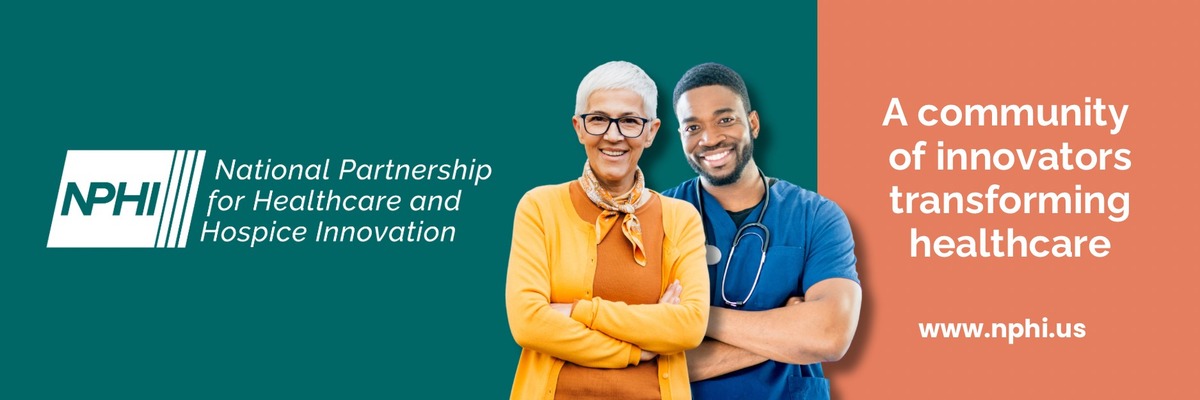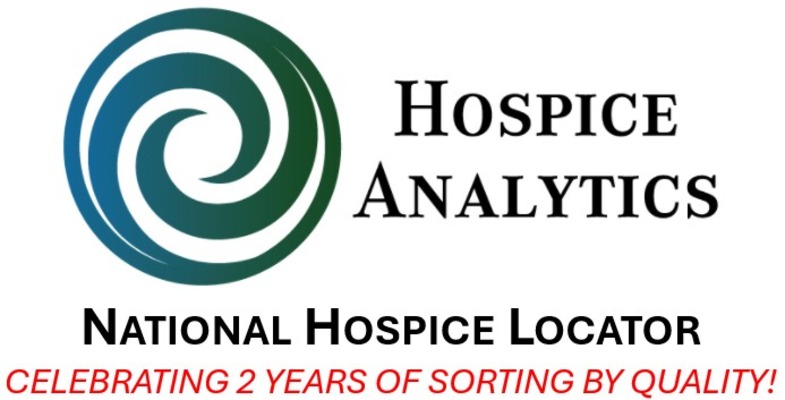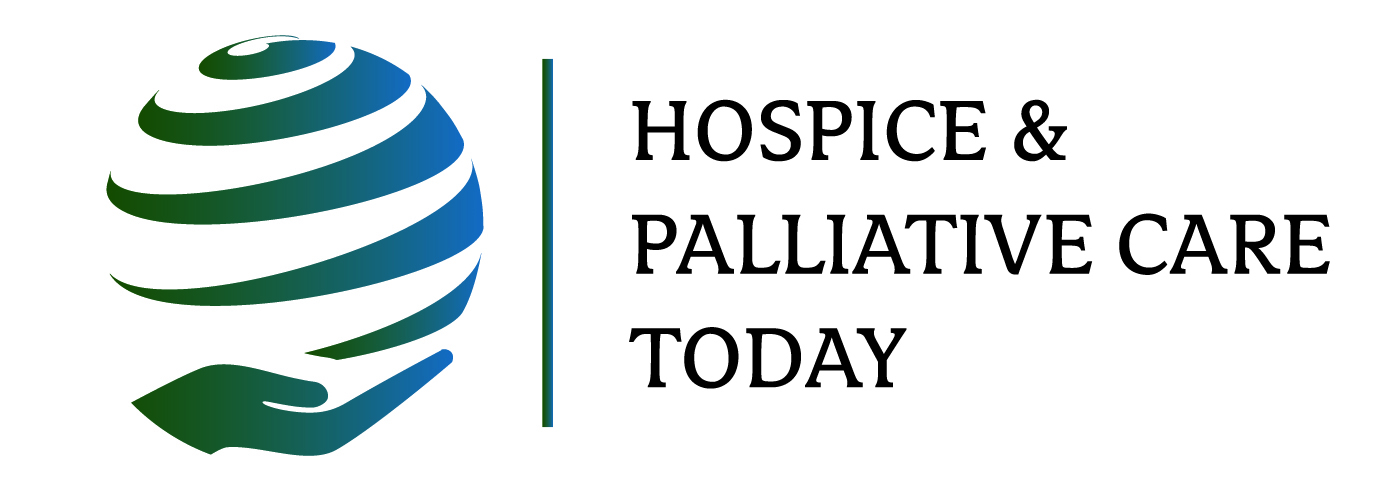Sign up for our free daily newsletters here! Note: subscribers can access our search feature!
Welcome to Hospice & Palliative Care Today, a daily email summarizing numerous topics essential for understanding the current landscape of serious illness and end-of-life care. Teleios Collaborative Network podcasts review Hospice & Palliative Care Today monthly content - click here for these and all TCN Talks podcasts.
3. The Alliance champions community-based solutions at Senate palliative care briefing
4. NPHI proud to announce its partnership on the upcoming documentary for PBS, Caregiving, from Executive Producer Bradley Cooper
9. CMS budget proposal would shift nursing facility oversight
A strategic path forward for hospice and palliative care: A white paper on the potential future of the field
Palliative Medicine Reports; by Ira Byock; 6/5/25
The field of hospice and palliative care in the United States is experiencing serious problems and faces an uncertain future. Quality of hospice care is highly variable. Unethical hospice business practices are common in some regions. Palliative care’s integration within American health care has stalled, despite demonstrating that much better care for seriously ill and dying people is both feasible and affordable... Efforts must start with zero tolerance of fraudulent business and clinical practices that harm vulnerable patients. The four components of this strategic approach are:
- Publishing clear clinical and programmatic standards
- Making meaningful data readily available
- Driving quality-based competition
- Embracing the field’s authentic brand of expert care that fosters well-being for patients and their families
Publisher's note: If you only read one of our newsletter articles this month, this is it. I encourage reading, applying, and disseminating this important article.
MorseLife: Pay to nonprofit's top executives draws community, donor scrutiny
The Palm Beach Post; by Alexandra Clough; 6/3/25
The controversy began in January when an anonymous letter was sent to the leadership board at the respected health care facility. To this date, it is not known — at least publicly — who authored the two-page salvo that first raised alarms about executive pay, tax law compliance and potential for a whistleblower complaint. Specifically, the letter flagged the payment of top MorseLife executives' compensation to a for-profit company called Amplifii Management LLC. Amplifii is owned by MorseLife Chief Executive Keith Myers and Chief Financial Officer Randy Wolan, according to federal and state public records.
 |
The Alliance champions community-based solutions at Senate palliative care briefing
National Alliance for Care at Home, Alexandria, VA and Washington, DC; Press Release; 6/4/25
The National Alliance for Care at Home (the Alliance) played a lead role in [Wednesday's] Senate Comprehensive Care Caucus briefing, which focused on expanding access to palliative care services for patients with serious illness. The bipartisan event, hosted by Senators Jacky Rosen (D-NV), John Barrasso (R-WY), Tammy Baldwin (D-WI), and Deb Fischer (R-NE), underscored the need for innovative models that deliver person-centered care in the home and community. Hillary Loeffler, Vice President of Policy & Regulatory Affairs for the Alliance, moderated the panel discussion, guiding thoughtful conversation on access, workforce, and innovation in care delivery.
NPHI proud to announce its partnership on the upcoming documentary for PBS, Caregiving, from Executive Producer Bradley Cooper
National Partnership for Healthcare and Hospice Innovation (NPHI), Washington, DC; 5/19/25
The National Partnership for Healthcare and Hospice Innovation (NPHI) is proud to announce its partnership on the upcoming PBS documentary Caregiving, a powerful new film executive produced by Academy Award-nominated actor, director, and producer Bradley Cooper. Created in collaboration with Cooper’s production company, Lea Pictures, as well as WETA Washington, D.C., and Ark Media, Caregiving will shine a national spotlight on the often unseen yet essential work of caregivers across the country. NPHI is honored to serve as a national partner on this important project. Narrated by Uzo Aduba (The Residence, Orange Is the New Black) and directed by Chris Durrance, Caregiving intertwines deeply personal stories of caregivers with the untold history of the American care system. The documentary examines how caregivers—often family members, friends, and frontline professionals—navigate the immense challenges and unseen achievements of their roles.
 |
Hospice chaplain provides comfort in life's final moments
Central Florida Public Media, Orlando, FL; by Bryan Gozalez and Claire Macchiarola; 6/4/25
The hum of an oxygen machine fills the room as Mary Durkin is helped from her bed and slowly takes a seat on her couch. As someone under home hospice care, the goal of her caretakers is to ensure the comfort of their patient as she nears the end of her life. And one of those caretakers is Vishisho Awomi, known to her patients as Chaplain Avika. She sits beside her, clasping Durkin’s small hands in her own for their weekly visit. Durkin is one of roughly 150 patients that fall under Avika’s spiritual care. As a hospice chaplain with VITAS Healthcare, it is Avika’s job to comfort, pray, or just be present with all of her patients. “I get to build that personal relationship and build that connection, I get to know that person from beginning to end,” Avika said. ...
Editor's note: Bravo to VITAS and this news outlet for highlighting the hospice chaplain role. From your leadership role, what do you know about the depth and breadth of chaplains' skills for improving person-centered care? For addressing family systems' conflicts? Ethics? More? Examine "Competencies of the Palliative Care & Hospice Advanced Certification," for this credential provided by the Association for Professional Chaplains.
Gaps in the coordination of care for older adults with or at risk for cardiovascular disease
The American Journal of Managed Care; by Lisa M. Kern, MD, MPH,Joselyne E. Aucapina,Samprit Banerjee, PhD, Joanna B. Ringel, MPH, Jonathan N. Tobin, PhD, Semhar Fisseha, MPH, Helena Meiri, MA, RN, Madeline R. Sterling, MD, MPH, Kurt C. Stange, MD, PhD, Monika M. Safford, MD, Paul N. Casale, MD, MPH; 6/3/25
... To determine whether older adults with cardiovascular disease (CVD) or CVD risk factors perceive gaps in communication among their providers and whether they consider those gaps to be consequential, we conducted a cross-sectional survey of Medicare beneficiaries 65 years and older with CVD or CVD risk factors and highly fragmented ambulatory care (reversed Bice-Boxerman Index score ≥ 0.85).
- Approximately half (48%) reported a problem with communication among their providers.
- One in 14 (7%) reported experiencing an adverse event that they thought could have been prevented with better communication.
- Interventions are needed to leverage patients’ observations and address gaps in communication before they cause harm.
 |
HOPE Assessment Tool blog series: All about active diagnoses
CHAP blog; by Jennifer Kennedy; 6/5/25
The implementation date of the HOPE assessment is now five months away and providers should be well on the path for readiness... This blog series has been working its way through the domains of the HOPE assessment tool and this edition will discuss patient diagnoses and health conditions... This domain (Section I) and its items refer to the patient’s primary diagnosis and any active co-morbidities. It includes the most common principal diagnoses among hospice patients, as well as comorbidities and co-existing conditions...
For Public Awareness: If you think you may have experienced Medicare hospice fraud, call 1-800-Medicare to report it.
Posted on X; by Mehmet Oz, "DrOzCMS"; 6/2/25
There’s a Medicare scam out there that can really hurt people, and I want to make sure you’re aware! People are targeting older Americans to trick them to sign up for Hospice without their knowledge. If you think you may have experienced fraud, call 1-800-Medicare to report it. To learn more, go to http://Medicare.gov/fraud.
 |
CMS budget proposal would shift nursing facility oversight
Becker's Hospital Review; by Elizabeth Gregerson; 6/4/25
Key changes put forth in President Donald Trump’s proposed fiscal year 2026 budget may have downstream effects on the survey and certification of skilled nursing facilities. ... Here are three things to know about the proposed changes:
- CMS’ State Survey and Certification program facilitates oversight of more than 67,000 Medicare and Medicaid-certified facilities, including nursing homes, long-term care facilities, intermediate care facilities for individuals with intellectual disabilities, home health agencies and hospice agencies. ... [The] CMS budget prioritizes complaint survey funds and reduces support to standard surveys. The agency has notified surveying agencies to prioritize complaint surveys over recertification and validation.
- The budget request for the Survey and Certification program for fiscal 2026 is $442 million, compared to $412 million in fiscal year 2024. ...
- [Survey chart for facility type, FY 2024 (final), and FY 2026 (projected)]
Rosen introduces bipartisan bills to expand access to palliative care, hospice care
Jacky Rosen, U.S. Senator for Nevada, Washington, DC; 6/5/25
U.S. Senator Jacky Rosen, co-founder and co-chair of the bipartisan Senate Comprehensive Care Caucus, announced the introduction of a pair of bipartisan bills to expand access to palliative and hospice care. The Expanding Access to Palliative Care Act with Senators Barrasso (R-WY), Baldwin (D-WI), and Fischer (R-NE) would establish a demonstration project through Medicare to expand access to palliative care at the time of diagnosis of serious illness or injury. The Improving Access to Transfusion Care for Hospice Patients Act with Senators Barrasso (R-WY) and Baldwin (D-WI) would carve out payment for transfusion services within the Medicare hospice benefit, allowing for separate billing to Medicare for transfusions. This would improve access to hospice care for patients who rely on transfusion care to maintain quality of life.
 |
10 notable ERP implementation failures and why they failed
TechTarget; by George Lawton; 6/4/25
There are a lot of ways ERP systems can fail. Many businesses rush into rolling out new functions without careful consideration of details -- or knowing the common reasons for ERP implementation failure. ... John Belden, chief of strategy and research at Boston-based UpperEdge, an IT negotiations consultancy, commonly sees three key characteristics of these projects that often contribute to ERP implementation failure:
- ERP implementations are often 2 to 10 times bigger than previous projects.
- They are transformational, which means there are winners and losers in the organization because of the digital transformation enabled by the implementation.
- They are generational, which means an organization might not have done anything comparable in 10 to 15 years.
... These 12 well-publicized cases of ERP implementation failure illustrate some of the main reasons why these operations fail and how to avoid them.
Implementing palliative care in nursing homes: A podcast with Connie Cole, Kathleen Unroe, and Cari Levy
GeriPal podcast; by Eric Widera, Alex Smith; 6/5/25
The need for better palliative care in nursing homes is significant. Consider this: the majority of the 1.4 million adults residing in U.S. nursing homes grapple with serious illnesses, and roughly half experience dementia. Many also suffer from distressing symptoms like pain. In addition, about 25% of all deaths in the United States occur within these facilities. Despite these substantial needs, specialized palliative care beyond hospice is rare in nursing homes. Furthermore, only about half of nursing home residents nearing the end of life receive hospice care. So, how can we improve palliative care for individuals in nursing homes? Today’s podcast explores this crucial question with three leading experts: Connie Cole, Kathleen Unroe, and Cari Levy.
 |
Executive Personnel Changes - 6/6/25
- Hospice of the Piedmont announces the retirement of Susan Cox, Senior Vice President of Clinical Services and Chief Nursing Officer, effective June 30
- With Cox's retirement, Hospice of the Piedmont has named her successor, Beth Taylor, who will assume the role of Chief Clinical Officer on July 1.
- The University of Arkansas for Medical Sciences (UAMS) has hired Brian W. Jones, DHSc, as the next Vice Chancellor for Regional Campuses. He will begin his new role Aug. 1. Before coming to Arkansas, Jones worked as a director or administrator for hospice programs in Iowa, Tennessee and Kentucky — most recently as director of hospice and palliative care from 2012-2017 for St. Elizabeth Healthcare in Edgewood, Kentucky. In 2014, he was named the Distinguished Leader of the Year by the Kentucky Association of Hospice and Palliative Care.
- Steve Landers, National Alliance for Care at Home, reviewed several hospice and palliative care research publications. [Interesting post!]
- Annette Kiser at Teleios Collaborative Network shared "I encourage hospice leaders throughout the organization to read this blog for practical suggestions on preparing for the October 1 implementation of the HOPE Tool!"
- Arlen Gaines: I’m so happy to share I have completed my PhD in Palliative Care with dissertation research on the grief and bereavement experiences of children with intellectual disabilities. [Congratulations!]
- Jacque Burklow at Hospice of Midland shared "Today, our Chaplains honored our Nurses with the beautiful tradition of the Blessing of the Hands. A timeless ritual that dates back to Florence Nightingale, it celebrates the selfless care and skill our nurses provide to those in need. We are grateful for these hands that offer comfort, compassion, and healing every day."
 |
The Fine Print:
Paywalls: Some links may take readers to articles that either require registration or are behind a paywall. Disclaimer: Hospice & Palliative Care Today provides brief summaries of news stories of interest to hospice, palliative, and end-of-life care professionals (typically taken directly from the source article). Hospice & Palliative Care Today is not responsible or liable for the validity or reliability of information in these articles and directs the reader to authors of the source articles for questions or comments. Additionally, Dr. Cordt Kassner, Publisher, and Dr. Joy Berger, Editor in Chief, welcome your feedback regarding content of Hospice & Palliative Care Today. Unsubscribe: Hospice & Palliative Care Today is a free subscription email. If you believe you have received this email in error, or if you no longer wish to receive Hospice & Palliative Care Today, please unsubscribe here or reply to this email with the message “Unsubscribe”. Thank you.

